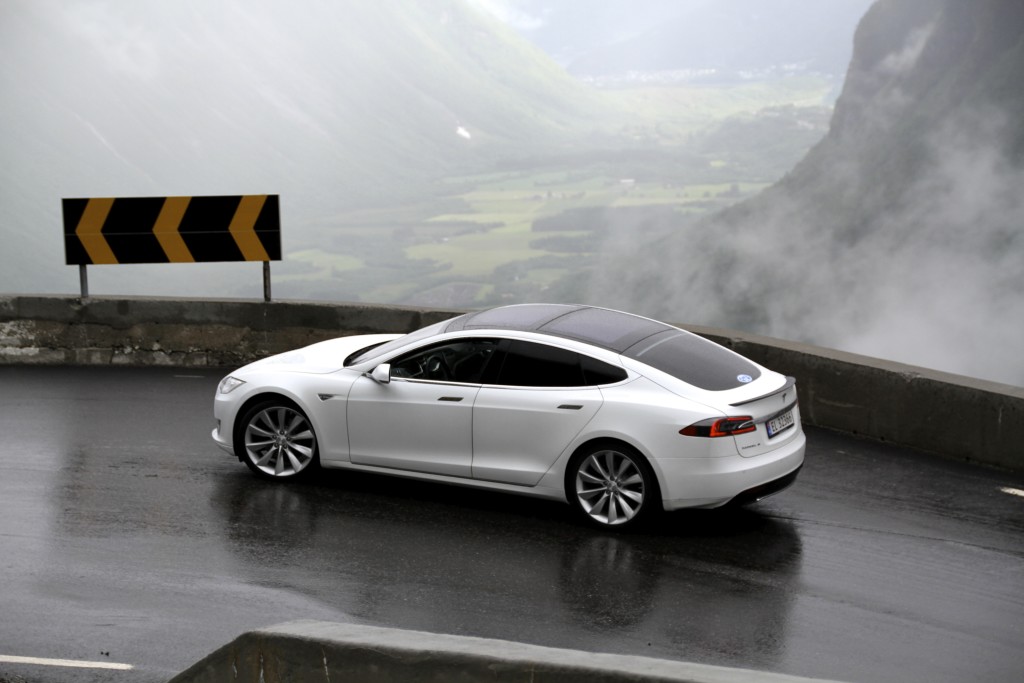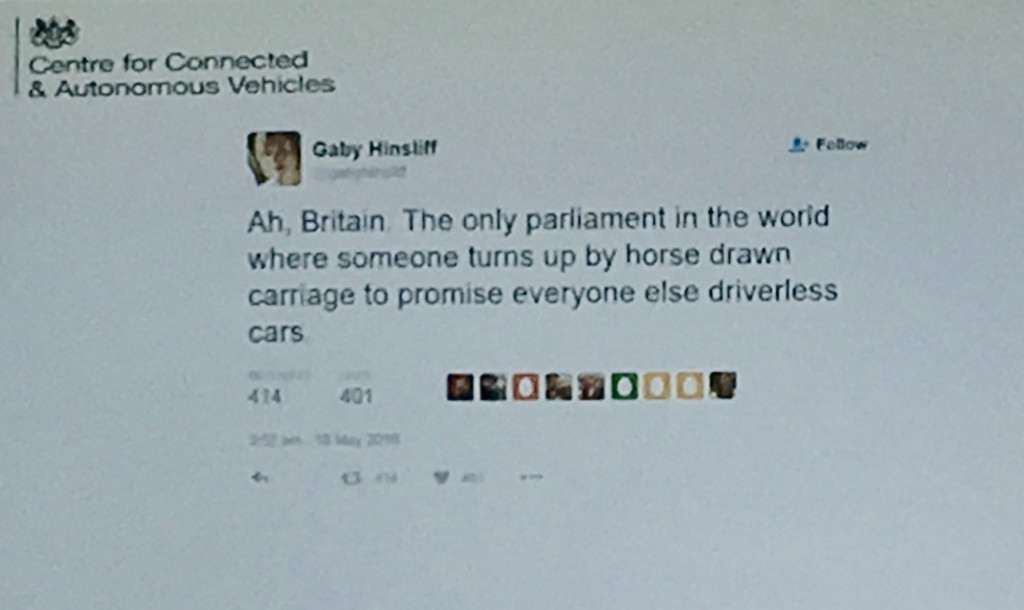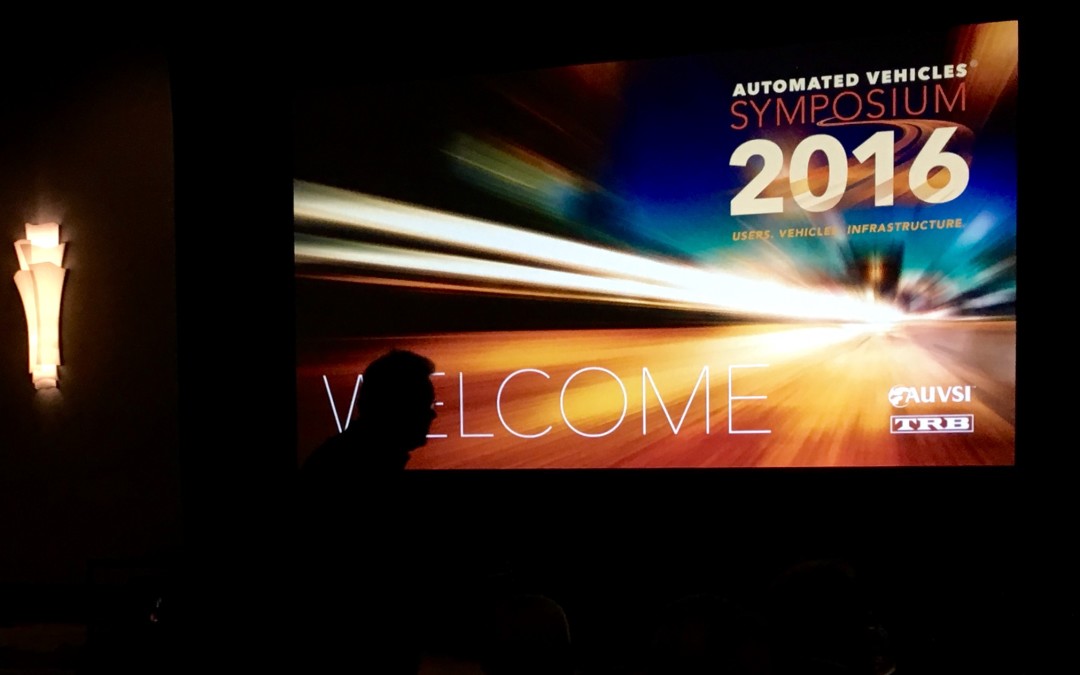By Alison van Diggelen, host of Fresh Dialogues
Will the fatal Tesla crash slow or even derail the development of self-driving cars? That was the topic we discussed on this week’s BBC World Service program, Click.
Despite complaints by consumer advocates that Tesla should disable its autopilot feature and not beta test “an unproven technology” on the public, Tesla is standing by its strategy. Today the BBC’s Dave Lee reported from the Gigafactory that Elon Musk has no regrets about how Tesla rolled out the autopilot.
“We have the internal data to know that we improved people’s safety, not just in fatalities but in injuries.” Elon Musk, CEO Tesla at Gigafactory, July 26 2016.
Remarkably, federal regulators at the Department of Transport (DOT) and the National Highway Traffic Safety Administration (NHTSA) appear to be siding with Tesla and urging a “full-steam ahead” approach. They’re focused on self-driving technology’s potential to save lives.
“No one incident will derail the DOT and NHTSA on its mission to improve safety on the roads by pursuing new life saving technologies. We…can’t stand idly by while we wait for the ‘perfect.’ We lost 35,200 lives on our roads last year. We’re in a bad place and we should be desperate for new tools that will help us save lives. How many lives might we be losing if we wait?” Mark Rosekind, Head of the NHTSA at the Automated Vehicles Symposium, July 20 2016.
The NHTSA is expected to release its new guidelines for self-driving (autonomous) cars any day now. I’ll post a link to them here as soon as they’re available.
Listen to our Tesla autopilot discussion below or at the BBC Click Podcast. The first broadcast aired on the BBC World Service at 2:30pm PST on July 26th.
Audio PlayerHere’s a transcript of our discussion (a shorter version aired on the BBC).
BBC Click Presenter, Gareth Mitchell: Now the first death of a Tesla driver on autopilot earlier this year was bound to overshadow the recent Automated Vehicle Symposium in San Francisco last week. But those at the meeting were also looking forward, at the latest innovations in driverless cars. BBC contributor, Alison van Diggelen was there for us, and she’s been telling me a bit more about what was being discussed.
Alison van Diggelen: The 3-day symposium assembled some of the top government authorities, academics and tech experts in the field of automated vehicles. The main topics included: the promise and challenges of automated vehicles; the federal guidance about to be released; and whether the Tesla crash will derail the development of automated vehicle technology. Mark Rosekind Head of the National Highway Traffic Safety Administration (“Nitsa”) spoke about all three topics and emphasized the technology’s potential to save lives.
Mark Rosekind: We’re not in a good place that we’re trying to make better. We lost 35,200 lives on our roads last year. We’re in a bad place and we should be desperate for new tools that will help us save lives. How many lives might we be losing if we wait? We have to do everything we can to make sure the new technology doesn’t introduce new safety risks, but we also can’t stand idly by while we wait for the “perfect.”
Reports around the country seem to be sounding the alarm: they are shocked, shocked (!) to discover there’s vehicle automation that’s already here…they’re demanding to know: where was the government to stop this?
I am not going to comment on an ongoing (Tesla) investigation…but I can say three things:
- We know there will be incidents that occur with highly automated vehicles and NHTSA will always be ready to use its authority to investigate and take whatever action is necessary
- New highly automated vehicles offer enormous opportunities for learning…When something goes wrong,…that data can be taken, analyzed and the lessons can be shared with all automated vehicles.
- No one incident will derail the DOT and NHTSA on its mission to improve safety on the roads by pursuing new life saving technologies.

We’re writing the Declaration of Independence, not the Constitution. It’s the first step that will lay the road map to the next generation of vehicle technology – a harmonized approach not just across states but perhaps even internationally. It’s an approach that’ll provide certainty to manufacturers, to make sure you’re focused on safety in the right ways.
We see a future where disabled people can reclaim independence and freedom in a personal vehicle. We even see a future when a fully automated car can relieve the occupants of all driving responsibilities, leave them free to read a book, make a phone call and yes, catch a few more Pokemon.
Gareth Mitchell: There was also talk of innovation, refining the technology and one UK voice in particular. Who was this, Alison?
Alison van Diggelen: Ian Forbes is head of the Center for Connected & Automated Cars, a joint policy unit of the UK government. I chatted to him briefly after his presentation, where he gave a flavor of the opportunities and challenges ahead. Forbes played a short video that showed a junction in a UK city. The simulation showed that connected & autonomous vehicles bunch closer together when they approach the red light. This means that when the light turns green, more cars can go through, making that junction more efficient. He says it was a result they weren’t expecting…and they expect further simulations will help predict other benefits of self-driving cars. He also talked about the importance of public perceptions and behavior. They’re starting a 3 year study…
Ian Forbes: In the UK we share a problem with everyone in this room. Like everyone here, we can see the potential benefits: fewer crashes, more efficient transport, new high value jobs. It’s also likely we face the same challenges: how do you design a regulatory framework when so much of the future technology is uncertain? How do you get maximum value for your research so that it delivers something new? One tool in our toolbox is Micro-simulation using agent based models to understand the impact of different transport scenarios to inform our future transport traffic predictions.
Gareth Mitchell: Finally Alison, the meeting was overshadowed by the tragic death of a driver in autopilot mode in a Tesla. What kind of reflections were there about how that leaves the whole driverless project?
Alison van Diggelen: I spoke with a number of conference attendees from the academic and tech worlds, including Bob Denaro, a member of United States’ Transport Research Board (TRB) and venture capitalist advisor to Motus Ventures. He reframed the the Tesla crash in its historical context, talking about the Wright brothers and one of their early passenger deaths, during a demo for the U.S. army. So I think that gives the Tesla crash an interesting historical context. He and a lot of people said, this seems a disaster short term but in the long term, it’s going to be a small bump in the road.
Bob Denaro: If we look at early days of aviation – the Wright brothers killed (one of) the first passengers….Frankly I’ve been surprised that the public reaction has been more muted than I feared it would be…I don’t think it’s going to be that big of an impediment to our progress and the speed of our progress.
The traditional automotive approach is: let’s test exhaustively over years and then put it on the market. Sometimes we make mistakes…maybe there are fatalities, recalls…The approach that Tesla is taking is: let’s put it out there early, before it’s completely done – let’s learn quickly, and because of the software updates over the air, let’s make changes…They may be on to something there.
My advice to Elon Musk would be: yes, be careful, make sure you test it, understand the results…But this approach – as different as it is to the traditional approach – just may be a better approach to minimizing the accidents we have to have along the way before we get close to perfection.

Bonus material:
Ian Forbes shared a video that didn’t make the final cut. With a little help from Queen Elizabeth and a humorous Tweet, he sent ripples of laughter throughout the global audience. Here’s the transcript (it’s a wee bit awkward).
The Queen (via video): My ministers will ensure the United Kingdom is at the forefront of the technology for new forms of transport, including autonomous and electric vehicles.
Ian Forbes: That was the Queen, in the UK, back in May setting out the future legislative program of the UK government. My favorite response was on Twitter: Ah Britain – the only parliament in the world where someone turns up in by horse drawn carriage to promise everyone else driverless cars.
Find out more:
Fresh Dialogues reports on Tesla and Electric vehicles (from the first Master Plan to date)
More from the BBC about Google and Self-Driving cars
Fresh Dialogues reports on government policy
Fresh Dialogues report on Inspiring Women




